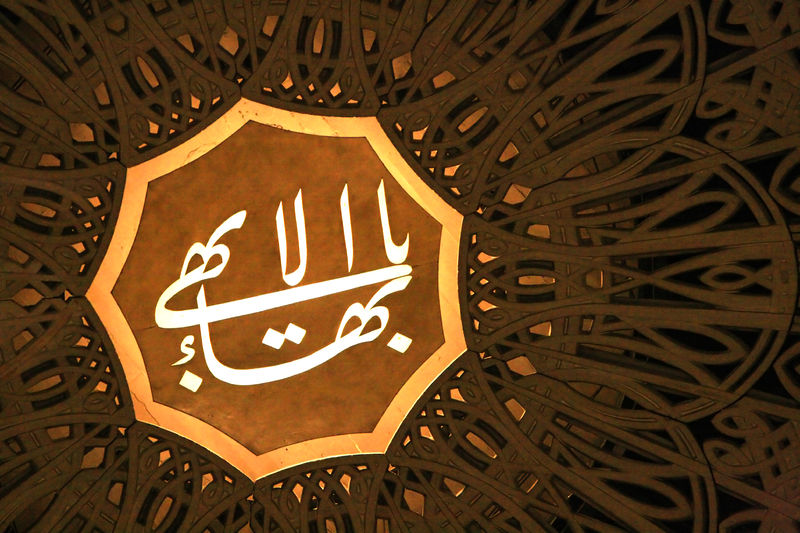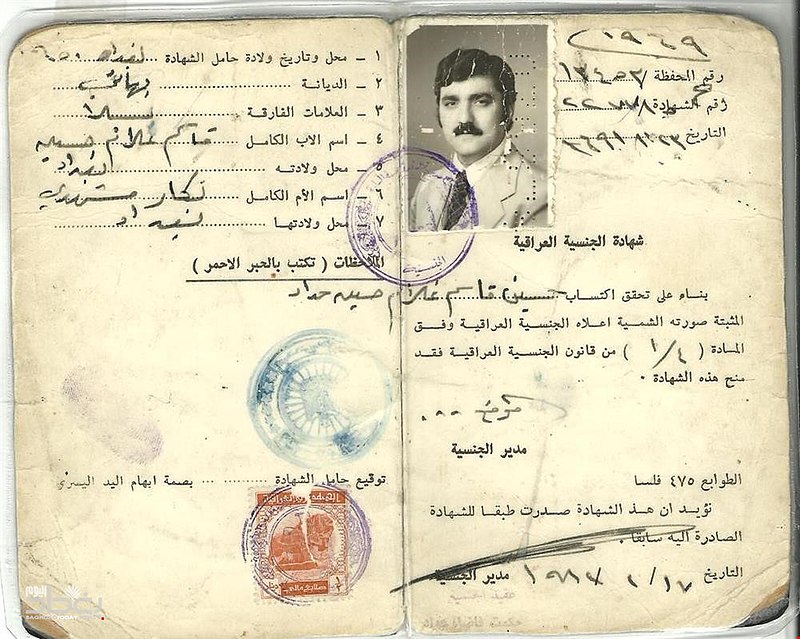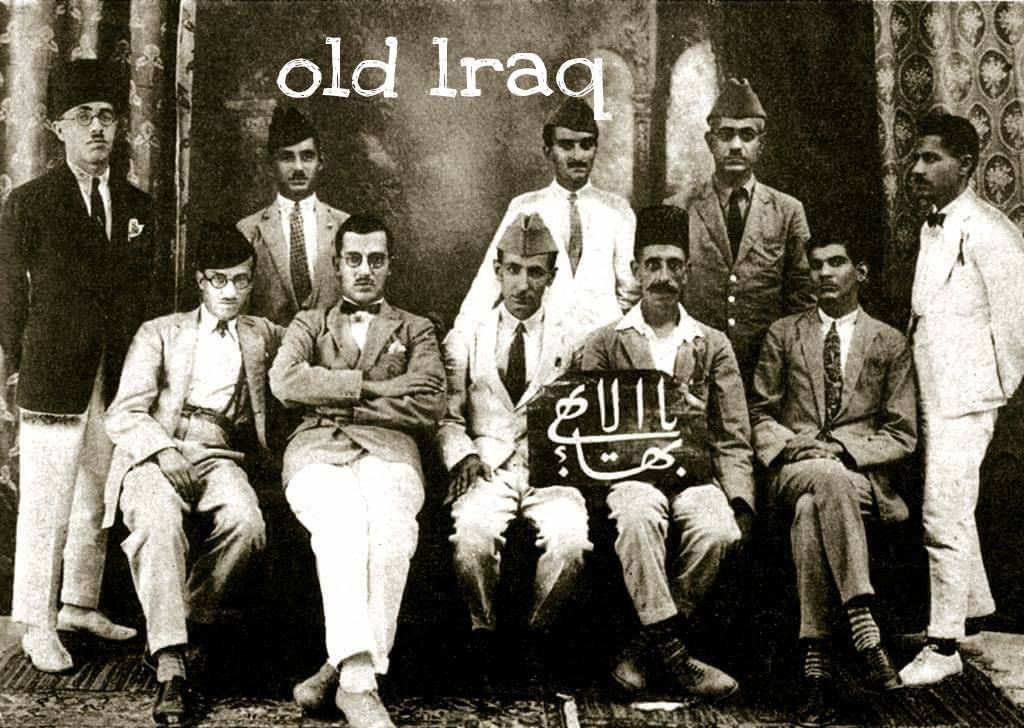“Despite the change of the governing regime in Iraq, we, the Baha’i, are still deprived of the right to declare religion or practice our rituals in public. We can’t even put our religious affiliation on our official documents like other religions,” said Ahmad.
Ahmad is not his real name, by a pseudonym; he prefers not to tell his real name as he wants to avoid repercussions.
Before mentioning that even on ID card he is counted as ‘Muslim,’ Ahmad’s first words were: “If things go on like this, we will be extinct.”
The Baha'i Faith was banned in Iraq in 1970 according to the decision of the now-dissolved ‘Revolutionary Command Council’ led by the banned Ba’th Party, and the registering persons as Baha’i in the government’s population register was scrapped.
The Baha’i is a monotheistic faith, and was founded by Hussein Ali al-Nouri, who was known as Baha’-Allah, in the second half of the 19th century. He declared the new religion at the al-Najibiya Park in Baghdad (known to the Baha’i as the al-Radhwan Park) in 1863 after he was exiled from Iran.

“Between the hammer of the Revolutionary Command Council and the anvil of ignorance”
Yasirr Ahmad, a Baha’i youth, explained that the Baha’is of Iraq ended up between “the hammer of the decrees by ‘Revolutionary Command Council’ and the anvil of society’s ignorance about the Baha'i religion.”
The ban on the Baha'i faith is an effort to “obliterate the identity of this religion and to distort its image among the few remaining people who heard about it,” explains Ahmad, and that this has made Baha'i a semi-secret religion, even though its adherents are “very sociable with other communities and religions in society.”
The suppression of persecution of the Baha'is reached its peak in 1970 when Article 105 was issued, which stipulated the prohibition of the practice of the Baha'i faith and was published in government-run newspapers at the time.
In addition, Decree 358 in 1975 stipulated scrapping the registration of Baha'is in the government population register. The Baha'is were then dispossessed of all their properties, while some were put in jail and others executed. Many also went missing during that period.
Sulaimani, 15 October 2017 – a book fair for Baha'i books; a rare event on the faith
Hurdles for annulling the decrees by the ‘Revolutionary Command Council’
Another adherent of the Baha'i faith from Baghdad, who also preferred not to mention her real name, said that Article 105 from 1970 stripped “the Baha'is of all their rights that is recognized internationally and locally in international treaties and conventions as well as the Iraqi constitution.”
She added that subsequent to those decrees all their places of worship were confiscated, and that thousands of the adherents of the faith left the country.
We are still struggling to obtain our very basic rights as a community which has its roots in our country
“We are still struggling to obtain our very basic rights as a community which has its roots in our country, meaning to abolish the ruling by the Revolutionary Command Council, but there are many obstacles, especially withing the executive branch.”
“We learned that the decrees by the Revolutionary Command Council will be taken to parliament to vote on their annulment, as they are not compatible with the new Iraqi constitution and the current democratic system, so we worked hard to include Article 105, and that took place, but certain sides obstructed the matter for unknown reasons,” she added.
One of the tenets of the Baha'i faith is the ‘spiritual unity of humankind.’ There are between five to seven million adherents of the religion, who are spread around the world, according to Baha'i sources.
Qahir Barzinji, a law expert, said: “The Iraqi constitution is very clear, especially in article 41, which stipulates that Iraqis are free to adhere to their personal status in accordance with their religion, sect, beliefs or choices, and that this is regulated by law, and in article 42, which affirms that every individual has the freedom of thought, conscience and belief.”
He further explained that Article 105 from 1970 is in contradiction with the principles of human rights that were stipulated in the Iraqi constitution and international treaties.

Baha'is in Iraq: from freedom to a struggle
Writer and activist Ammar Harim explained that the non-Muslims were recognized by law in 1917, and that minorities, from then on, were able to get married in court, practice their relation and organize religious ceremonies at their places of worship.
And in 1025, after it was recognized the freedom of religion, minorities were able to practice their religions in complete freedom and in public.
In 1936 the Baha'i faith was mentioned in the official guide for the Ministry of the Interior, and the Iraqi constitution thus guaranteed the freedom of this minority.
Ammar Hatim explained that after the first population census in 20134, the Baha'is were able to register themselves as adherents of the Baha'i faith in the government registers. And that the same was true for the census in 1947.
The Baha'is also would also get identification cards with their faith written on it like other religions.

Turning point
Hatim said that the crackdown on the Baha'is started after the 1963 coup, and that in 1975 their inclusion in government population registers was stopped.
And with that they were prevented from registering marriage contracts in the civil status records, and deprived of civil status cards, and consequently from passports, government employment, entry to universities, and the sale and purchase of homes and properties.
This led to some of them to register as having other religions.
Hatim says that after so many years and so many changes, the Baha'is are still unable to practice their religion.





